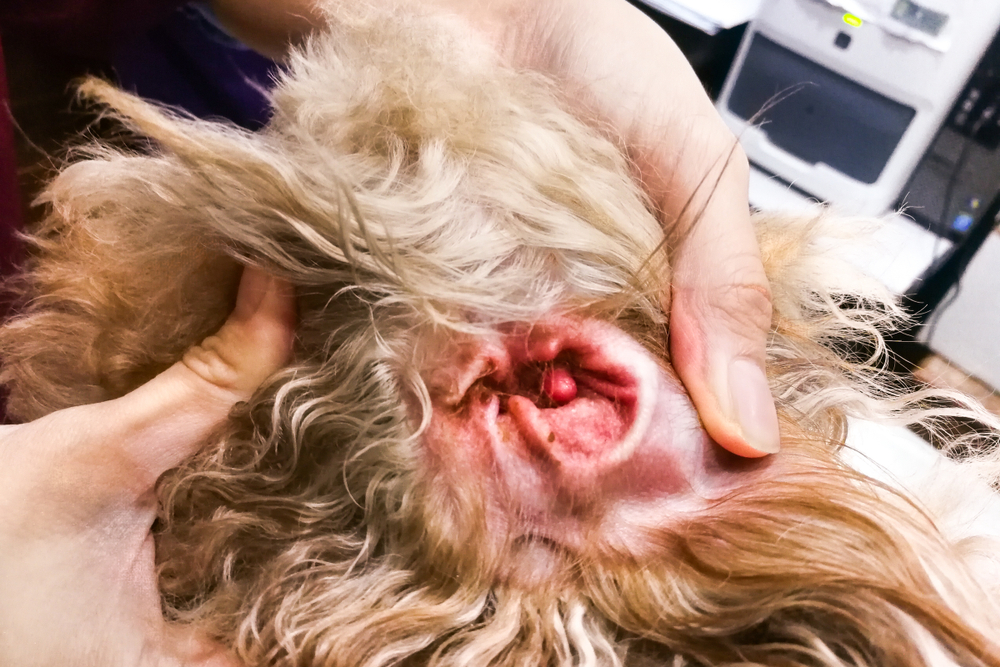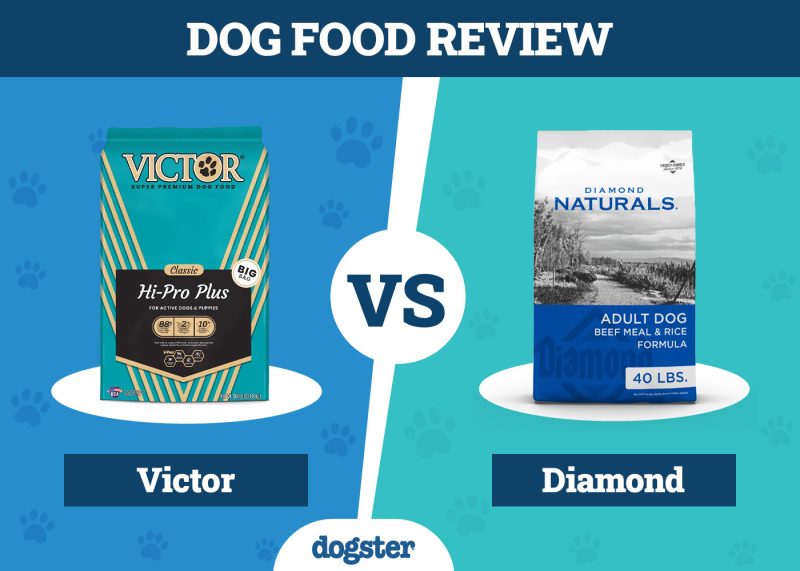In this article
View 4 More +According to claim data from Nationwide Pet Insurance, ear infections are the second leading reason for vet visits for dogs. The anatomy of the canine ear canal makes these conditions more prevalent. Infections are most common in the outer ear, but disease and complications can also occur in the middle and inner portions, causing pain and discomfort. The most prevalent condition is otitis externa. Read on as we learn more about ear infections and why your dog’s infection might not be going away.

Will My Dog’s Ear Infection Go Away on Its Own?
In the majority of cases, your dog’s ear infection isn’t just going to go away. So, if you haven’t already taken them to the vet, you need to do so as soon as possible. But what if you have taken them to the vet, did what the vet asked, and the problem still isn’t resolved? Well, you need to take them back to the vet, as there are a variety of causes of ear infections, some of which require different treatments.
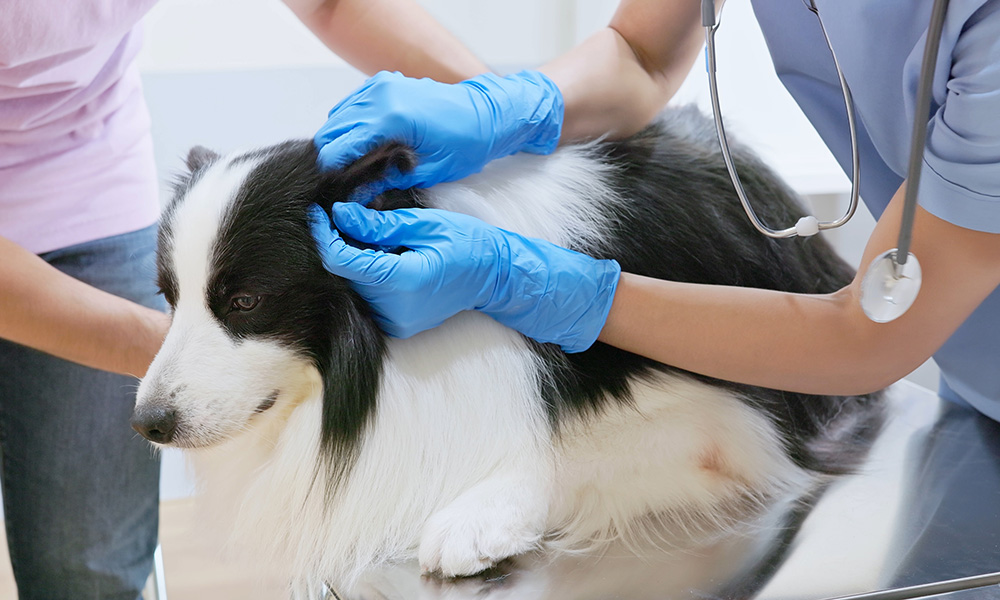
Causes of Ear Infections
Otitis externa is the inflammation of the external ear canal. It’s a catch-all term that describes this condition.
- Foreign matter in the canal
- Wax build-up
- Parasites
- Bacteria, fungi, or yeast infections
- Allergies
Determining the cause is imperative for managing chronic ear infections. These conditions are often painful, with a real risk of serious complications if left untreated. Other diseases can lead to ear infections, making their management a part of your pet’s treatment plan.
Genetics also plays a role. A study of over 22,000 dogs in the United Kingdom found certain breeds were more susceptible to ear infections. The researchers cited the Basset Hound, Chinese Shar-Pei, Labradoodle, and Beagle among those with the highest prevalence of otitis externa. The scientists singled out the ear conformation of the Basset Hound as a potential cause.
The canine ear canal isn’t straight like a human’s but has an L-shape, which complicates cleaning and examining the structure. Another factor is the pendulous shape of the Basset Hound’s pinna or external ear portion. Allegedly, enthusiasts selectively bred the dog for this trait to better direct scents to the animal’s nose.
The study also identified Poodle-like dogs as having a higher risk of ear infections because of the abundant hair in their canals. It could hamper circulation and create a hospitable environment for bacteria and yeast to develop. Cocker Spaniels are often cited as another breed with a high prevalence of ear infections because of their higher density of apocrine or sweat glands. However, even dogs with erect ears, like German Shepherds, can get ear infections. Things affecting whether the condition is chronic have many mitigating factors.
- Excessive head shaking
- Pawing at the ears
- Odor from the ears
- Redness and inflammation of the pinna
- Discharge
If your dog struggles with any of the signs above, you should take them to be examined by a vet.
If you need to speak with a vet but can't get to one, head over to PangoVet. It's our online service where you can talk to a vet online and get the advice you need for your pet — all at an affordable price!


Treating Ear Infections
The first step in treating ear infections is identifying the cause. Pain management is also essential to prevent secondary conditions caused by excess scratching. Your vet will begin with a complete history and physical examination, which they may do after sedating the pet if it’s painful. Running a culture from a smear will identify any pathogens, like bacteria and yeast.
They may also order blood work if they suspect other predisposing issues. A microscopic examination of the discharge can also spot problems caused by parasites, such as ear mites. Your vet will sometimes clean or flush the ear canal to remove the irritants. Follow-up in simple cases includes ear drops and sometimes antibiotics in the case of bacterial causes. You should get your dog re-examined as recommended by your vet.
Giving your pup the medications as prescribed is imperative to resolve chronic ear infections. If the ear infection doesn’t clear up, your vet will conduct additional testing to determine if another cause exists, such as a food allergy. They will likely recommend frequent cleaning to manage the wax build-up that can complicate the treatment. Surgery is a last resort option if the condition doesn’t resolve.

Prevention of Ear Infections
Of course, prevention is the best way to manage chronic ear infections. Lifestyle factors may play a role. You should dry your pet’s ears after swimming or bathing to prevent moisture build-up that can aggravate an existing condition. If your dog has hairy ear canals, you should speak to your vet about whether trimming them regularly may help maintain adequate airflow. Ask your vet to show you how to do this task correctly.

Frequently Asked Questions
How Often Should I Clean My Dog’s Ears?
You should follow your vet’s instructions since your compliance is critical for managing chronic cases. Once or twice weekly should suffice for routine care if an infection isn’t present.
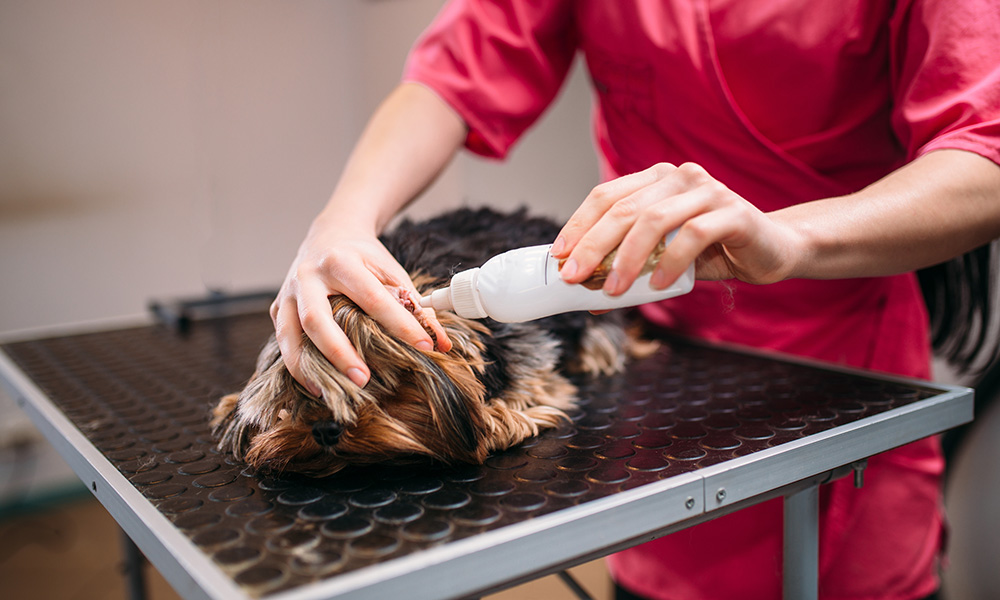
My Dog Loves to Swim. How Can I Prevent Ear Infections?
You should ask your vet about drying agents to prevent moisture in your dog’s ear canals. You can use them after your dog gets out of the water. However, absorbing excess water with a cotton ball or towel will often suffice.
My Dog Doesn’t Like the Ear Drops My Vet Prescribed. What Can I Do?
Call your vet and ask for advice on other ways to administer the drops, such as by putting them on a cotton ball and rubbing your dog’s ears. You can also calm your pet with a gentle ear rub if their ears aren’t painful.
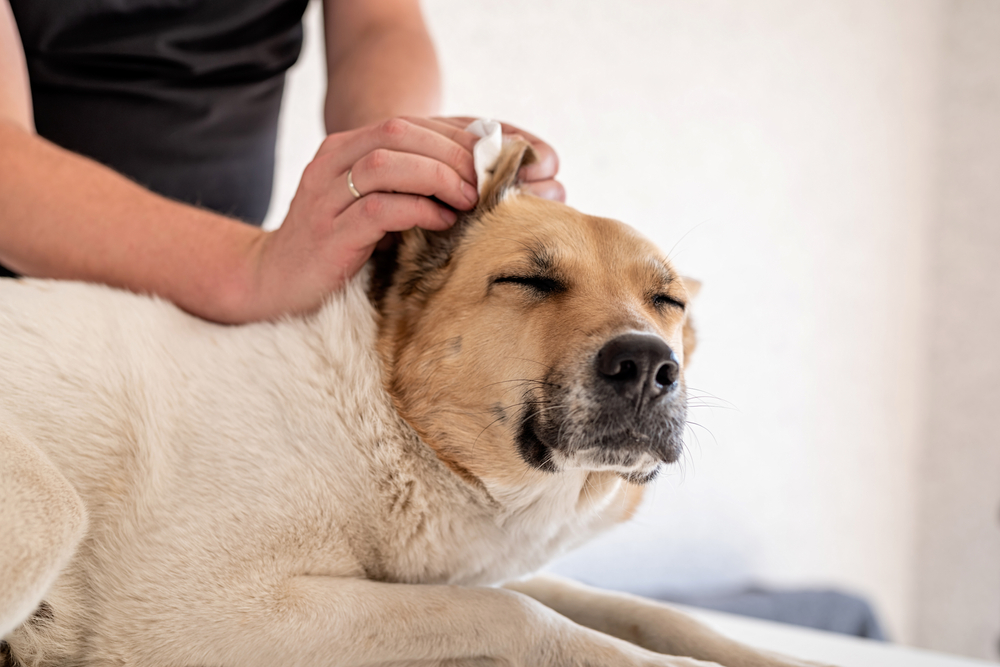
What Is the Prognosis for Chronic Ear Infections?
The prognosis depends on identifying the cause and triggers of the problem. That can take time, but rest assured, your vet will work earnestly for a resolution. Your job is to regularly care for your dog’s ears and seek treatment at the first sign of an issue.

Final Thoughts
Ear infections can cause considerable discomfort for your pet. Identifying and treating the cause is imperative so they don’t become chronic and increase your pet’s risk of complications. Even simple cases can take a couple of weeks to resolve. Your compliance with your vet’s instructions is critical for managing these cases. While not always preventable, you can reduce the chances of re-infection.
See Also:
- Bulldog Tail Pocket Infection: Vet-Approved Prevention & Care Guide
- Home Management for Your Dog’s Ear Infection: Our Vet Shares Tips & Advice
Featured Image Credit: ThamKC, Shutterstock
